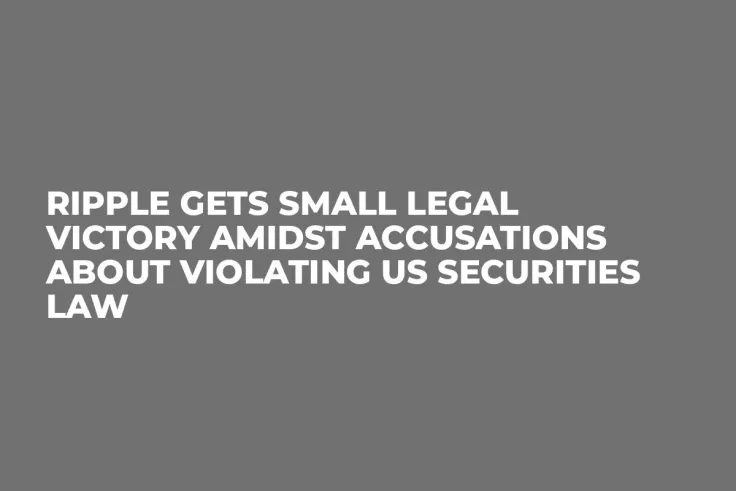A crypto giant Ripple has faced numerous lawsuits this year that are connected to its alleged security status. However, now these similar lawsuits are being consolidated.
Combining multiple lawsuits
Ripple has been pushing for consolidating numerous similar securities fraud lawsuits, which would make it significantly easier to fight them. It seems like this effort didn’t go in vain– the third lawsuit (the ‘Oconer case’) has been recently defined as a matter of complex litigation.
California law allows to combine similar court cases that are basically dealing with Ripple being a security, thus violating existing securities law. Consequently, there will be no contradictory ruling, so it effectively cuts court times and fees.
‘No arguments’
Brad Garlinghouse, Ripple CEO, insists that the cryptocurrency cannot be considered a security. Garlinghouse claims that the currency itself doesn’t depend on Ripple as a company (even if the company fails, Ripple will continue to exist). He also points out that owning XRP doesn’t equal owning Ripple’s equity.
While Ripple currency remains in the legal gray zone, Garlinghouse welcomes new regulations. The SEC is poised to have a final say about defining XRP as a security, but Ripple’s chief executive claims that there are no arguments to disprove Ripple’s non-security status, so he’s not worried about the upcoming decision.
Centralization raises concerns
The third lawsuit, filed by an investor David Oconer, claims that the company was able to raise nearly $100 mln by selling own pre-mined token. In addition, it managed to boost the token’s price because of its limited distribution model.
Ripple has always been controversial from its very inception because of its centralized nature. U.Today has reported that its centralization became the reason for a recent Morgan Creek snub.


